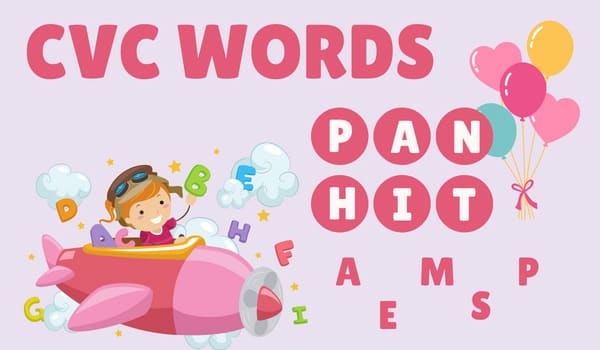Ensuring effective communication with your child is a vital aspect of building a strong bond. This involves encouraging them to express their thoughts and emotions while actively listening and responding sensitively. Mastering the art of talking to a child requires an understanding of verbal and non-verbal cues.

Talking effectively with children involves considering various factors, such as the tone and pitch of your voice, the choice of words, and the use of phrases that resonate with them. Understanding what children of different ages can comprehend and adjusting the conversation’s duration accordingly is crucial for meaningful interactions.
Types of Communication:
Communication with your child can take different forms, each playing a significant role in fostering a healthy relationship. Recognizing the limited time parents often have for communication, it becomes essential to optimize the quality of interaction.
Verbal:
- Tone and Pitch: Pay attention to the tone and pitch of your voice, as they convey emotions and impact the overall message.
- Choice of Words: Be mindful of the words you use, employing phrases that your child can easily grasp and relate to.
- Non-verbal Communication: Alongside words, non-verbal cues such as gestures, body language, eye contact, and physical touch contribute significantly to effective communication.
Non-verbal:
- Gestures: Utilize gestures to complement verbal expressions, adding depth to the communication process.
- Body Language: Your body language can convey warmth and openness, making the child feel more comfortable sharing their thoughts.
- Eye Contact: Maintain appropriate eye contact to establish a connection and show genuine interest.
- Physical Touch: When appropriate, physical touch can provide comfort and reinforce emotional connection.
- Respecting Personal Space: Recognize and respect personal space, ensuring a comfortable environment for communication.
These two forms of interaction are crucial for your child to have a healthy conversation and enhance your child’s social skills. Once you begin a conversation with your child, you will realize they can respond and interact better.
Tips to Improve Effective Communication with your Child
Effective communication plays a pivotal role in developing social skills and fostering positive relationships, especially within families and among peers. Given that children are in the early stages of both verbal and non-verbal communication, it is crucial to ensure efficient interaction, paving the way for their active participation in various activities and setting the foundation for better communication in the future.
To interact with your child effectively, have a look at these tips below:
Use Door Opener Statements:
Door opener statements encourage more interaction and expression of ideas and feelings. Incorporating phrases like “Wow!,” “I see,” “Really,” and “Amazing” signals to your child that you’re interested in both talking and listening. These expressions not only convey words but also assist in developing your child’s social skills.

Encourage to use more do’s than don’ts:
Most of the time, children often hear a lot of don’ts that fail to promote the positive behavior you want to see and expect in the future. They reinforce the conduct which they don’t want. The best way to do this step is to talk to your child. It will make it sound like you are talking to a friend. The more you talk to your child as a friend, the less likely you will use the don’t sentences. You must use more respectful sentences with your child to build a healthy and interactive relationship.
Engage with two-sided conversations:
Promote a friendly atmosphere by engaging in two-sided conversations that involve both speaking and active listening. This approach is particularly beneficial when your child is still developing their vocabulary. Encouraging dialogue ensures a strong and healthy relationship, as opposed to a dynamic centered solely around giving instructions.
Use the first person to interact:
Using the second word with your child will hurt their self-esteem and their struggles to mentally and physically handle responsibilities in the future. When you use the first word of the conversation, it will help to convey the message more clearly and gives your child what they are expecting. It will put a greater responsibility on them to change. Rather than passing negative words with the second person, begin with the first person.
Avoid harsh words and labels:
Using harsh words and labels is a big no for parenting as this will result in a bad relationship between child and parent and creates further problems in the future. Such things as name-calling, shaming, and other ridiculous statements will make children feel bad and make your child feel disliked and affects the view negatively. To allow healthy communication is to avoid using harsh comments.
Make requests important:
Making requests necessary is the best way to know how to talk to a child. Ensure your demands are essential to ensure that you have your child’s attention. Then speak firmly to show that you mean what you want to say and mention the reason why your child must do this thing at a particular time. If your child is playing with toys, it will be hard to engage their attention with you. To do this well is to pick another time or use polite phrases for the request to be successful. For example, to do this task well, ask your child to do a specific job and mention the reason rather than yelling.
Use gentle phrases:
This step is essential to communicate with your child with love and respect. Children who speak politely and show respect and appreciation have self-worth. You can use other words like ‘Thank you for cleaning the room’ or ‘I love you very much.’ The more you use kind phrases, the more your child will engage in a conversation. Once you use positive sentences, your child will communicate better and build a great relationship.
Show your child that you can accept them:
Showing the child that you can accept makes you feel optimistic about making a change and feeling good about yourself. Once your child feels great about themselves, they are more likely to interact and get along with people. It makes them feel safe to express their feelings and share them with their relatives or peers. If you command or instruct them to do something, they will feel insecure and struggles to perform tasks and performances. It will also affect their mental and physical health. To interact with your child well is to acknowledge your child that you can accept.

Do not correct or criticize when your child tries to speak:
When you begin the conversation with your child, and they speak, do not correct or criticize. It will cause discouragement, and they will feel insecure about developing effective communication in the future. To avoid an issue, simply begin the conversation with your child and allow them to continue. Even if they know that they are saying the wrong words or sentences, it will enable them to build confidence in speaking.
Wrap Up:
Communication with your child is the most important way to build a healthy relationship and enhance social skills in the future. Knowing how to talk to a child requires following the right ways to maintain a positive relationship and tune in to your attention. The more you communicate with your child, the more they will get your attention.


